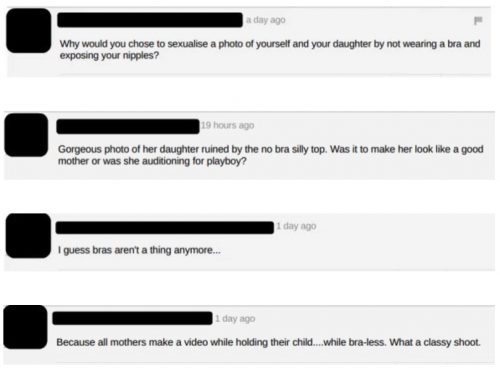Lawrence Krauss has been cut off from the Richard Dawkins Foundation and Center for Inquiry, after years of being one of their most prominent featured speakers. Now he has also resigned from the board of the Bulletin of Atomic Scientists, and has been put on paid leave from Arizona State University.
The university, in a statement issued late Tuesday, said it began a review of the professor’s conduct after it was contacted for the article.
“In an effort to avoid further disruption … as the university continues to gather facts about the allegations, Krauss has been placed on paid leave and is prohibited from being on campus for the duration of the review,” ASU said in a written statement.
Krauss is busy denying everything. It’s kind of shocking how rapidly his academic empire is crumbling around him, but then I have to think of the women who never had a chance to build a little academic province of their own, and I guess I can’t feel too bad about it.
He does still have one bulwark desperately making a last stand for him: Wikipedia.
…as of today, March 5, Krauss’ Wikipedia page has no mention of any recent developments – not the allegations themselves, not Krauss being barred from multiple college campuses, not several of his upcoming talks being canceled. If you look at the talk page, you can see several contributors deleting edits by other users that mention these things, and insisting that the Buzzfeed article is just “gossip” and that “Buzzfeed isn’t usually considered a reliable source”, and that this merits totally excluding any mention of it.
Note: as of today, the 7th, the Wikipedia article does now include a paragraph on the allegations — I guess since the article was touting his ASU position and his leadership of the Bulletin, and those are now no longer operational statements, that had to be amended.
That dismissal of Buzzfeed has become the routine defense of Krauss — and these clever, serious, objective skeptics don’t even seem to notice that they’re committing the genetic fallacy (also, skimming through the wiki talk page, they commit another fallacy: that because these accusations are serious, if they were true, he would have been arrested, therefore they don’t need to be reported. Who needs philosophy and logic when you’ve got the police to do your thinking for you?)
But Adam Lee has an excellent defense of Buzzfeed, so I’ll just let him continue.
While Buzzfeed does publish its share of silly clickbait, their investigative unit employs 20 journalists and engages in serious, important reporting. One of their reporters was a Pulitzer finalist in 2017; another won a Pulitzer prior to being hired there. Ironically, BuzzFeed’s own Wikipedia page has categories for “Notable stories” (significantly, including the sexual-misconduct accusations against Kevin Spacey) and “Awards and recognition”.
As for the journalists who wrote the Krauss story, one of them, Peter Aldhous, has reported for the journals Nature and Science and teaches investigative and policy reporting at UC Santa Cruz. The other reporter, Azeen Gorayshi, has written for the Guardian, New Scientist, Newsweek, and Wired, among others. The editor, Virginia Hughes, has written for the Atlantic, the New York Times, National Geographic, and Slate.
If this doesn’t meet the definition of serious, noteworthy journalism, then no such thing exists. Clearly, the Guerrilla Skepticism group is employing their own biased and highly selective definition of “reliable source” in order to avoid mentioning stories that would cast their hero in an unfavorable light, even in a supposedly neutral and comprehensive encyclopedia article. (The State Press, a student-run newspaper at Arizona State University, has since published their own article about Krauss.)
Yeah, you actually have to read the news articles to assess them. I was also surprised, once upon a time — I thought Buzzfeed was synonymous with superficial clickbait. But then I discovered that they had really built up a substantial news group,
with people I knew who had excellent journalistic reputations, and they were really digging deep.
One of the things about Buzzfeed that may rub some people the wrong way is that they’ve run quite a few stories about the culture of sexual privilege and harassment in academia. It’s not so much that they’re a bad news organization as that they’re a very good news organization that isn’t afraid to challenge powerful, influential people.
You know, like we used to imagine journalists were supposed to do.
I should mention that Krauss does still have some other defenders. His scheduled speaking tour with Richard Dawkins in Australia and New Zealand is still on.
Oops. Spoke too soon.
Think Inc. wish to advise that Lawrence Krauss has stepped down from the Science In The Soul shows in Australia and New Zealand this May. The ‘Science In The Soul’ shows will continue with Richard Dawkins with a special guest co-host announcement forthcoming.
— Think Inc. (@thinkincAU) March 7, 2018




